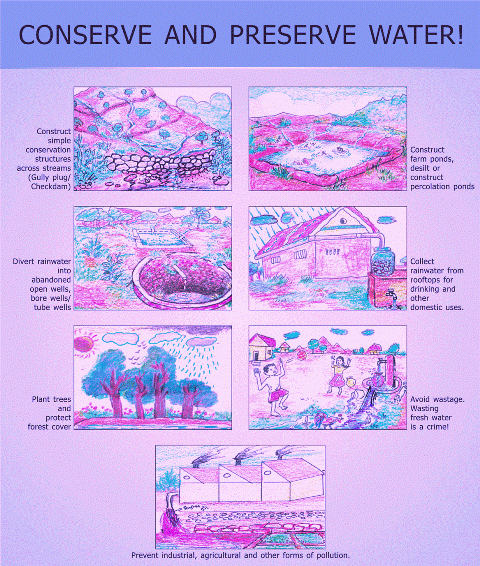New York/Geneva, 18 December 2007 - Three years after the Indian Ocean Tsunami claimed the lives of more than 200,000 people and devastated towns and communities, UNICEF has released its 2007 Tsunami report (http://www.unicef.org/emerg/disasterinasia/) highlighting progress made for children since the 2004 catastrophe.
Including a detailed financial analysis of funds collected and expenditures to date, the report shows significant gains in education, particularly in the area of school construction in the eight affected countries. Since 2004, more than 150 million US dollars have been spent on education – more than a third of which were put into use in the past year. UNICEF has completed construction on more than 100 schools, and the building process is underway for another 254.
The report also highlights progress in UNICEF’s other programme areas, including health and nutrition, water and sanitation, HIV/AIDS and child protection in India, Indonesia, Malaysia, Maldives, Myanmar, Sri Lanka and Thailand. Some of the achievements in these areas include:
• Construction on 59 health facilities has been completed, while construction is underway on an additional 115;
• More than 20,000 water points have been restored, serving over 730,000 people, and over 42,000 latrines constructed;
• Insecticide-treated mosquito nets have been distributed, benefiting nearly 3.5 million people;
• Over 1.2 million children have benefited from UNICEF’s psycho-social activities;
• HIV/AIDS awareness and education campaigns have reached over 330,000 people.
In addition to UNICEF’s achievements to date, the 2007 Tsunami Monitoring Report also highlights the challenges that often hinder recovery programmes. For example, work in Sri Lanka and Somalia has in some cases been halted due to a resurgence of violence in the past year. Also, construction in Indonesia has been hampered by the lack of new roads and unresolved land titles, monitoring and evaluation in the Maldives by the dispersed geography, and access in Myanmar by geography and security.
Realizing that lasting recovery will take years, UNICEF tries not only to move quickly, but also to be accountable and ensure its work has lasting impact. The aim is not to find quick solutions that cannot be sustained, but to build back better, involving communities and local governments in the recovery and rebuilding process. With these long-term goals in mind, UNICEF’s tsunami programmes and corresponding funding are planned through the end of 2009.
About UNICEF
Including a detailed financial analysis of funds collected and expenditures to date, the report shows significant gains in education, particularly in the area of school construction in the eight affected countries. Since 2004, more than 150 million US dollars have been spent on education – more than a third of which were put into use in the past year. UNICEF has completed construction on more than 100 schools, and the building process is underway for another 254.
The report also highlights progress in UNICEF’s other programme areas, including health and nutrition, water and sanitation, HIV/AIDS and child protection in India, Indonesia, Malaysia, Maldives, Myanmar, Sri Lanka and Thailand. Some of the achievements in these areas include:
• Construction on 59 health facilities has been completed, while construction is underway on an additional 115;
• More than 20,000 water points have been restored, serving over 730,000 people, and over 42,000 latrines constructed;
• Insecticide-treated mosquito nets have been distributed, benefiting nearly 3.5 million people;
• Over 1.2 million children have benefited from UNICEF’s psycho-social activities;
• HIV/AIDS awareness and education campaigns have reached over 330,000 people.
In addition to UNICEF’s achievements to date, the 2007 Tsunami Monitoring Report also highlights the challenges that often hinder recovery programmes. For example, work in Sri Lanka and Somalia has in some cases been halted due to a resurgence of violence in the past year. Also, construction in Indonesia has been hampered by the lack of new roads and unresolved land titles, monitoring and evaluation in the Maldives by the dispersed geography, and access in Myanmar by geography and security.
Realizing that lasting recovery will take years, UNICEF tries not only to move quickly, but also to be accountable and ensure its work has lasting impact. The aim is not to find quick solutions that cannot be sustained, but to build back better, involving communities and local governments in the recovery and rebuilding process. With these long-term goals in mind, UNICEF’s tsunami programmes and corresponding funding are planned through the end of 2009.
About UNICEF
UNICEF is on the ground in over 150 countries and territories to help children survive and thrive, from early childhood through adolescence. The world’s largest provider of vaccines for developing countries, UNICEF supports child health and nutrition, good water and sanitation, quality basic education for all boys and girls, and the protection of children from violence, exploitation, and AIDS. UNICEF is funded entirely by the voluntary contributions of individuals, businesses, foundations and governments.
For further information, please contact:
Patrick McCormick, UNICEF New York, + 1 212 326 7426, pmccormick@unicef.org
Veronique Taveau, UNICEF Geneva. +41 22 909 5716, vtaveau@unicef.org
Miranda Eeles, UNICEF Geneva. +41 22 909 5715, meeles@unicef.org







No comments:
Post a Comment